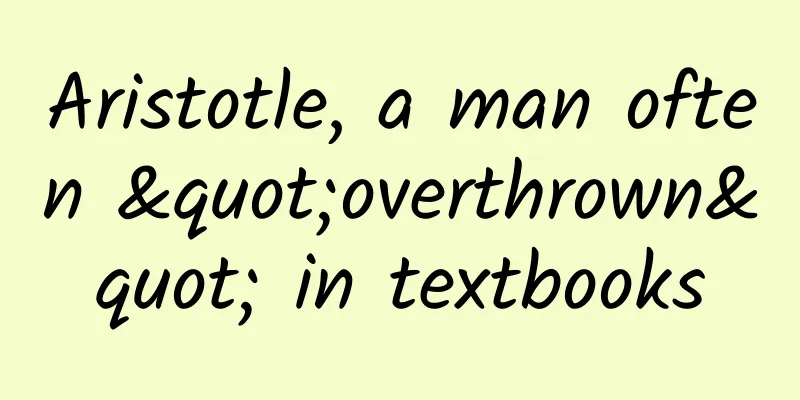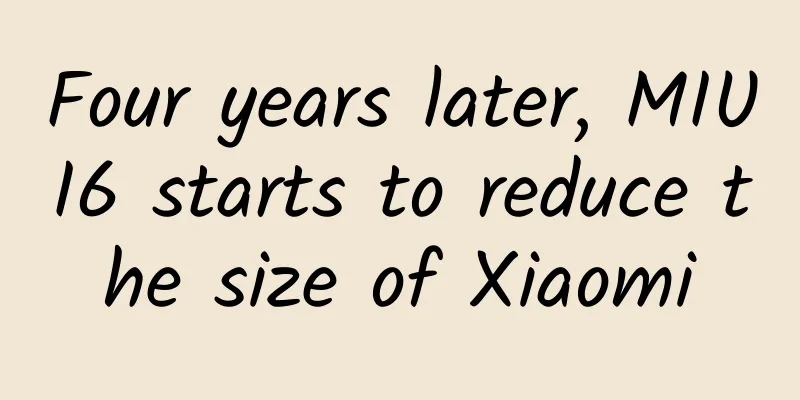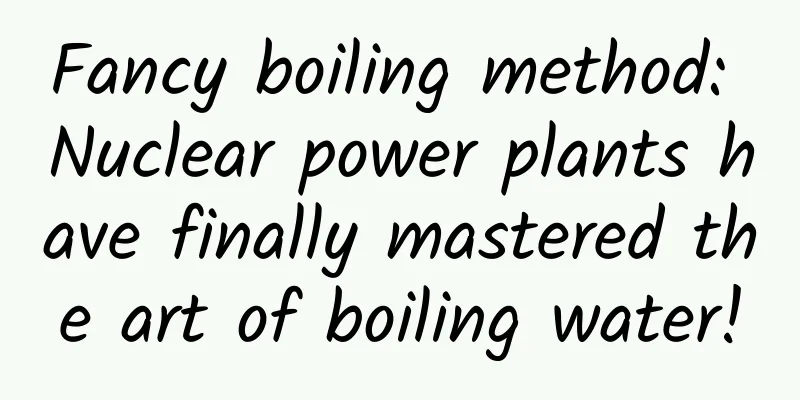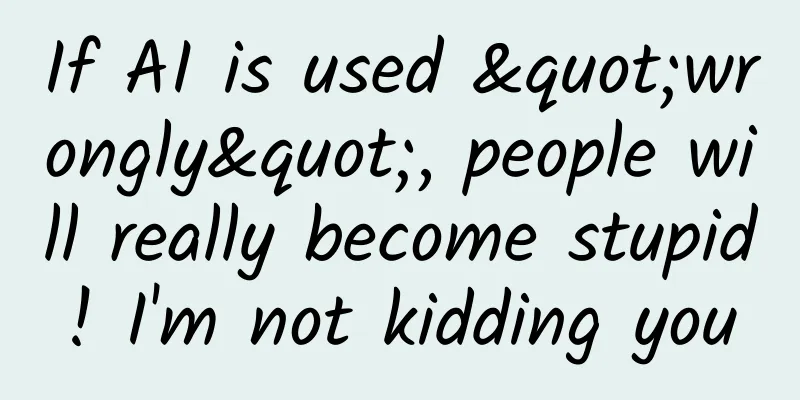Aristotle, a man often "overthrown" in textbooks

|
I wonder if you have noticed such a man in your study of classical physics. His theories appear in textbooks, but the final results are almost always "overturned". Does this sound familiar to you? Yes, it is Aristotle. Galileo conducted an experiment on the Leaning Tower of Pisa in which two iron balls landed simultaneously, overturning Aristotle's theory that the falling speed of an object is proportional to its weight. Newton proposed Newton's laws of motion in his masterpiece "Mathematical Principles of Natural Philosophy", overturning Aristotle's theory that "force is what keeps objects in motion", and his dispersion experiment overturned Aristotle's statement that "white is the purest light"; After Copernicus proposed the "heliocentric theory", he overturned the "geocentric theory" supported and developed by Aristotle. The development of modern physics can be said to be the enlightenment movement in the field of natural science. In the early days, in order to get rid of the suppression of the powerful religious forces in the Middle Ages, it naturally carried a temperament of resisting authority. Aristotle's research conclusions were accepted by the Catholic Church in a certain context, so overthrowing his theory seemed to have the meaning of eliminating ignorance. When we study physics, we feel that “whatever this guy says is wrong, can he think about it?” But he is Aristotle, Plato’s student, Alexander the Great’s teacher, a walking “encyclopedia”, and the most learned philosopher in ancient Greece… Sounds a bit contradictory, doesn't it? Aristotle's theory was wrong Let’s take a closer look at some of the theories of this ancient Greek sage. 1 About falling motion When Aristotle said "heavier objects fall faster", he had a premise: other things being equal. What does this mean? That is, the density of the medium through which they fall is the same, and the volume and shape of the objects are the same. So was his conclusion wrong? It can be said that there was nothing wrong with it. If a lead ball and an iron ball of the same volume are put into water together, the lead ball should indeed fall faster because it has a greater density and is subject to greater gravity, while the buoyancy of the two balls is the same. “Other things being equal”, you could even say Aristotle was pretty rigorous. Based on this, can Galileo's experiment on the Leaning Tower of Pisa really completely disprove Aristotle's theory? The volume of the big ball and the small ball is not the same, and the air resistance has a negligible effect on the acceleration of the iron ball in the short process of falling from the tower compared to gravity. 2 On Force and Motion Aristotle's statement is: if you find an object in motion, you will inevitably look for its mover. If there is no mover, it will stop, so "force is the cause of the object's motion." So is his statement correct? It was acceptable, at least in his time. In their time, there was no concept of "vacuum", and Aristotle did not believe that the state of "vacuum" existed, so resistance always existed in the context of his theory. And the "force" he mentioned was not "force" in the full sense, that is, "interaction between objects", but "the effect of people on objects". But he was helpless when faced with the stars in the sky. After all, no matter how smart a mind is, it cannot escape the era in which it lives. The stars in the sky are also moving, so who "pushed the stars"? Aristotle believed that it was God, or a supernatural power. Religions liked this conclusion very much, so they accepted Aristotle's theory and called the supernatural power God. It is true that Aristotle's theory had errors, which were corrected by great scientists in later generations, but he did not come up with his own theory on a whim. He came up with the theory that best explained the phenomena observed in people's daily lives at that time after a lot of observation, careful summary, and rigorous thinking. The person from 0 to 1 Or we can think about this problem from another angle: Why is he always the one who is "overthrown"? The description of "the most learned" is probably correct. Aristotle's research covers almost all fields, including philosophy, physics, biology, astronomy, atmospheric science, psychology, logic, ethics, politics, art and aesthetics, etc. He read all kinds of books and had no prejudice against knowledge. He wrote more than 170 books in his lifetime. He was the first to classify "science", which gradually evolved into many independent disciplines; he recorded the morphology and structure of almost all creatures that the Athenians had seen at that time, and as a person who lived more than two thousand years ago, he realized that dolphins belonged to "mammals" rather than "fish"; he pioneered logic and was the first to propose the methods of induction and deduction. Boole replaced his logical terms with arithmetic operators and created mathematical logic. Shannon wrote the paper "Symbolic Analysis of Relay and Switching Circuits", which was a milestone in the development of computer science, based on mathematical logic. Aristotle was one of the philosophers who made great efforts to push the progress bar of "science" from "0" to "1". If there were no Aristotle, Galileo and Newton, how could we have overturned the theories of our ancestors and pushed the progress bar forward? Newton's theory is only applicable to macroscopic, low-speed environments, so Einstein's theory of relativity came into being. However, the contradiction between the theory of relativity and quantum mechanics has not yet been resolved. This is how science develops. We are all Aristotle in our understanding of the world - because even now we do not fully understand the world. He just did it exceptionally well. So, what is the essence of "love of wisdom"? The most important thing may not be the correct conclusion in the textbook, because even the existing "correct conclusion" may be replaced by new theories due to defects. Perhaps Aristotle, who is often "overthrown", has already told us the answer. Active observation, rigorous thinking, and never-ending exploration. |
<<: When people reach middle age, their bodies become more and more round. What's going on?
>>: Characters | Han Xiqiu: The female chief who searches for the "black chimney" on the seabed
Recommend
Pan Yi_Required Course of Chinese Medicine Culture
Resource Introduction: Pan Yi: Compulsory Course ...
Exhibition optimization case, how to reduce conversion costs by 80%?
This article shares with you a case study of cust...
Unexplained childhood hepatitis appears in many countries! What exactly is hepatitis?
Mixed Knowledge Specially designed to cure confus...
This article teaches you how to build a self-media matrix and acquire customers at low cost!
Someone asked me: Without money or resources, can...
What preferential policies are there for retired college students taking the civil service examination in 2022? What benefits are there?
College student conscription refers to the army r...
Is it expensive to produce the Zhuhai ticketing mini program? Zhuhai Ticketing Mini Program Production Cost and Process
How much does it cost to produce the Zhuhai ticke...
Why do others feel full of energy while I still feel so sleepy even though we both sleep for 8 hours?
"How long is the best sleep for a person?&qu...
Maugham's Literature Class: How to Read and Write
Introduction Maugham, author of The Moon and Sixp...
Severe toothache is unbearable! Do taking medicine or chewing peppercorns really work? Huaxi doctors: Recommend this treatment method!
Toothache, the listener is sad and sheds tears Ho...
“Immune gap” VS “immune deficiency”: Who is more reasonable?
The theory that the new coronavirus destroys the ...
How to build user stratification operations?
Pyramid stratification is a method of stratifying...
Large capacity, zero attenuation, CATL Tianheng energy storage system debuts at ESIE 2024
On April 11, the 12th Energy Storage Internationa...
In just 7 days, nearly 300 people were infected! Why do some people just can't stop drinking?
Expert of this article: Zhang Zhaomin, Master of ...
How does Pinduoduo achieve user growth?
Since 2017, remarks about the arrival of the ceil...
Drinking is bad for your brain! The more you drink, the smaller your brain becomes and the earlier you age?
Is drinking alcohol good for your health? not goo...









